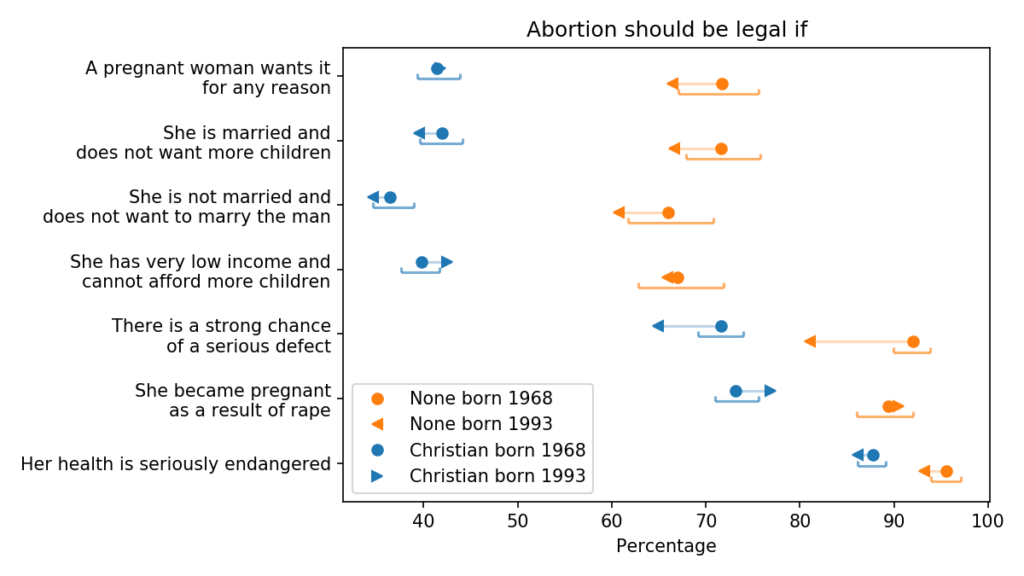A large majority of Americans support legal abortion, at least in some circumstances
This is the third in a series of articles where I use data from the General Social Survey (GSS) to explore
- Differences in beliefs and attitudes between Christians and people with no religious affiliation (“Nones”),
- Generational differences between younger and older Christians, and
- Generational differences between younger and older Nones.
In the first article, I looked at changes in religious beliefs and found that younger Christians are more secular in many ways than the previous generation.
In the second article, I looked at views related to law and public policy and found that young Christians are more progressive on most issues than the previous generation.
In this article, I use the same dataset to explore changes in opinions about abortion. For details of the methodology, see the previous article.
GSS respondents were asked, “Please tell me whether or not you think it should be possible for a pregnant woman to obtain a legal abortion” under different circumstances.
The following figure shows the results.

The blue markers are for people whose religious preference is Catholic, Protestant, or Christian; the orange markers are for people with no religious affiliation.
For each group, the circles show estimated percentages for people born in 1968; the arrowheads show percentages for people born in 1993.
For both groups, the estimates are for 2018, when the younger group was 25 and the older group was 50. The brackets show 90% confidence intervals.
Before we look for generational changes, we should notice the starting point: a large majority of Americans support legal abortion, at least in some circumstances.
- In cases of severe birth defects and pregnancy due to rape, the majority is about 70% of Christians and 90% of the nonreligious.
- In cases of serious danger to the woman’s health, it’s almost 90% of Christians and nearly all of the nonreligious.
Under other circumstances, opinions are more divided, with support near 40% among Christians and 70% among the Nones.
Looking now at the generational changes, I see only one that is likely to be practically and statistically significant: younger people in both groups are less likely than the previous generation to support legal abortion if there is a chance of serious birth defect.
Even so, there is majority support in both groups, more than 60% among Christians and 80% among Nones at age 25.
In summary:
- Beliefs about abortion depend substantially on the circumstances;
- In many circumstances, a large majority of Christians and the non-religious support legal abortion;
- Even where there is disagreement between the groups, there is substantial diversity of opinion within both groups;
- Generational changes in these opinions are generally small and within the statistical margin of error.